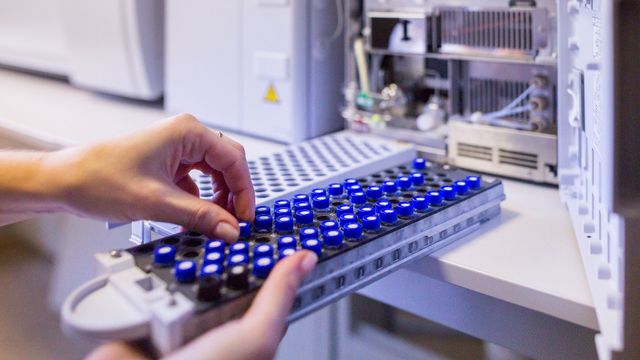Trending News
News

News
Mini Brains Reveal Mechanisms Behind Lewy Body Dementia
Scientists created mini-brain models from LBD patients' stem cells, mimicking key disease features. Using these models, they screened nearly 1,300 FDA-approved drugs and identified four potential compounds to inhibit alpha-synuclein buildup.

News
Rats Use Sound To Enhance Sense of Smell
Research suggests that rodents produce ultrasonic vocalizations (USVs) to influence particle movement, enhancing their olfactory reception. This finding challenges traditional views of rodent vocalizations as social cues.

News
Cord Blood Cells Used To Recreate a Functional Human Immune System in Mice
Researchers have used cells from cord blood to recreate a functioning human immune system in mice.

News
Impact of Skin Pigmentation On Drug Bioavailability
The researchers argue that a sizable proportion of drugs and other compounds can bind to melanin pigments in the skin, leading to differences in how bioavailable and efficacious these drugs and other compounds are in people with varying skin tones.

News
Pancreatic Cancer Combination Therapy May Improve Treatment Response
Researchers have discovered that a novel combination therapy promotes cancer cell death and tumor regression in pancreatic cancer.

News
Targeting “Selfish” Bacteria Could Help Combat Antibiotic Resistance
Understanding how "selfish" bacteria are could guide tailored treatments to combat antibiotic resistance.

News
Gene Therapy Enables Precise Magnetic Field Control of Brain Circuits
A new gene therapy technology enables the non-invasive control of specific brain circuits, holding promise for studying the brain and finding treatments for neurological conditions.

News
New Antibodies Could Mitigate Opioid Side Effects
Scientists developed a nanobody, NbE, that binds tightly to opioid receptors, blocking their activity. This could mitigate the severe side effects of opioids and lead to the creation of smaller, more effective molecules.

News
Mutation Linked to Epilepsy Targeted With Novel Gene Therapy
NUS Medicine researchers are exploring a gene therapy approach for epilepsy linked to the KCNA2 mutation. The therapy uses Gapmer antisense oligonucleotides to target faulty RNA, restoring potassium flow and reducing excessive neuron activity.

News
Gene Therapy Shows Long-Term Benefit for Rare Pediatric Brain Disease
Researchers report that 94% of patients treated with the gene therapy eli-cel for cerebral adrenoleukodystrophy (CALD) have maintained neurological function six years post-treatment.
Advertisement




